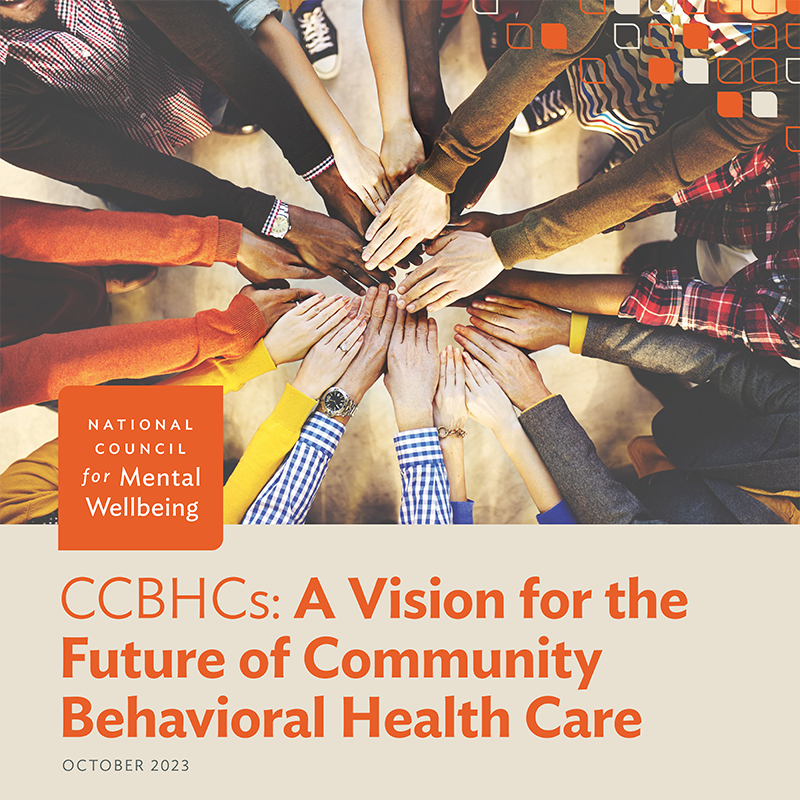Amidst efforts to expand the CCBHC model’s nationwide footprint, new National Council resource highlights innovations made possible through the model
WASHINGTON, D.C. (Oct. 4, 2023) — The National Council for Mental Wellbeing today published a first-of-its-kind resource for community-based provider organizations and states working to leverage the Certified Community Behavioral Health Clinic (CCBHC) model to expand access to high-quality care.
“CCBHCs: A Vision for the Future of Community Behavioral Health Care” outlines a national vision for excellence in community mental health and substance use care and describes how clinics can leverage their CCBHC status to transform the experience of accessing care.
“We must take steps today to improve the quality of health care that will strengthen communities, help people in need and improve health outcomes — tomorrow is too late,” National Council for Mental Wellbeing President and CEO Chuck Ingoglia said. “The overwhelming need for mental health and substance use care demands that we embrace innovative ways of structuring, as well as delivering and paying for care. The CCBHC model represents the best solution to accomplish that goal.”
Announced at The Kennedy Forum’s Alignment for Progress Conference, the National Council’s new resource captures innovations and best practices being used by CCBHCs that improve health outcomes, facilitate access to care, and demonstrate the value of the model. It shows how clinics, policymakers, payers, partner organizations and the private sector can achieve the transformation in access to mental health and substance use care that the nation began working toward 60 years ago when President Kennedy signed the Community Mental Health Act into law on Oct. 31, 1963.
For clinics, the resource provides ideas to help design programs and services, streamline operations to ensure same-day access and develop a workforce capable of meeting increased demand for services and improving health care outcomes. For states, it includes recommendations to engage with CCBHCs to better inform policy solutions to reduce barriers to care and coordinate statewide efforts like implementing the 988 Suicide and Crisis Lifeline.
Operated and certified in 12 states, CCBHCs have seen widespread bipartisan support in the last decade. Just last year, the CCBHC demonstration program was expanded to add 10 new states every two years, starting in 2024. Yet despite the model’s proven success, most communities across the country don’t yet have access to a CCBHC. Implementing the program’s expansion and codifying the model into law will help ensure more people can access high-quality care in their communities. Learn more about efforts to maximize the success of the model.

Download the Vision Paper
About The National Council
Founded in 1969, the National Council for Mental Wellbeing is a membership organization that drives policy and social change on behalf of over 3,200 mental health and substance use treatment organizations and the more than 15 million children, adults and families they serve. We advocate for policies to ensure access to high-quality services. We build the capacity of mental health and substance use treatment organizations. And we promote greater understanding of mental wellbeing as a core component of comprehensive health and health care. Through our Mental Health First Aid (MHFA) program, we have trained more than 4 million people in the U.S. to identify, understand and respond to signs and symptoms of mental health and substance use challenges.
Media Contact
Sophia Majlessi
Media@TheNationalCouncil.org
202-621-1631



